About Endeavor Health Elmhurst Hospital
Elmhurst Hospital’s Main Campus, located in Elmhurst, Illinois, offers a warm and welcoming environment where compassionate care meets comprehensive behavioral health services. The emphasis of Elmhurst Hospital’s treatment plan is on treating a range of conditions, like depression, anxiety, substance use disorder, eating disorders, and trauma.
Each person who seeks care through Elmhurst receives an individualized approach that honors every single person’s unique story and walk of life. Plus, they accept patients from as young as 11.
Comprehensive Behavioral Health Services
At Elmhurst Hospital’s Main Campus, there is a full spectrum of services designed to guide every person who reaches out for support through each stage of recovery. They also offer partial hospitalization programs and intensive outpatient programs.
They have specialty programs available too, like their Ongoing Addiction Recovery Services Clinic and their Withdrawal Management and Detoxification Clinic. No matter what program a person enters into, they’ll receive a comprehensive behavioral health assessment via a licensed counselor to identify which steps are the best to take for a person’s care.
So, whether a person is seeking help for substance use disorder, dual diagnosis or other mental health concerns, there are a ton of support options available. They currently accept private insurance plans, Medicare, and Medicaid. Plus, they offer both a sliding scale and an income-based payment structure for those who are eligible.
Latest Reviews
Rehab Score
Gallery
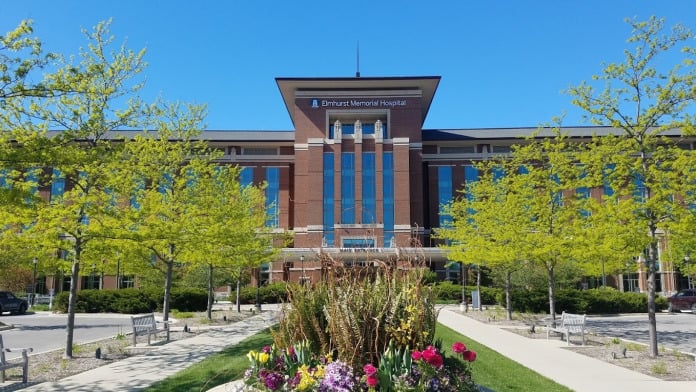
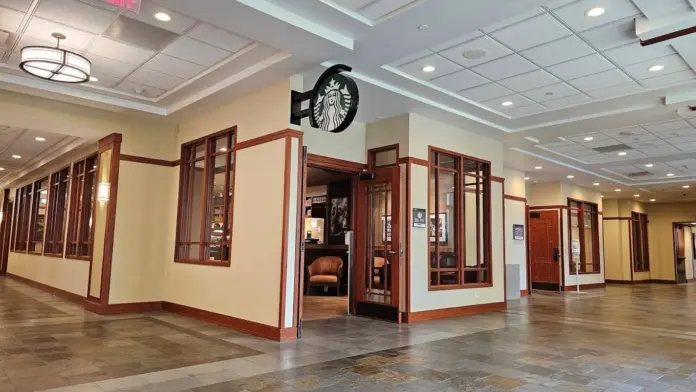
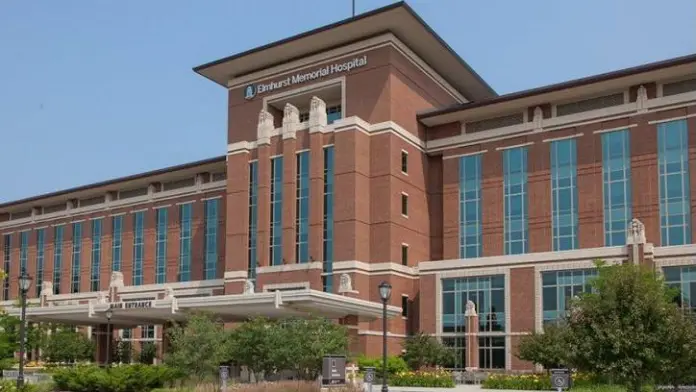
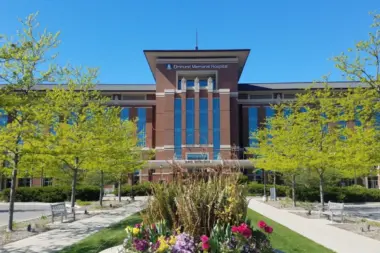
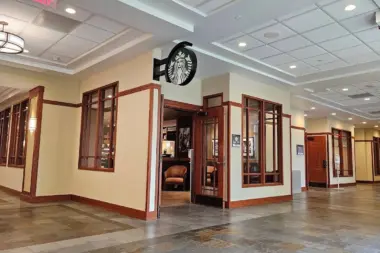
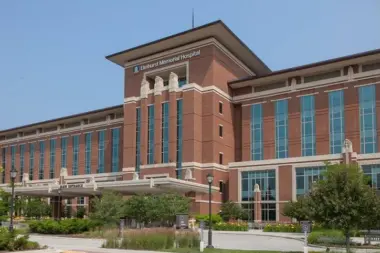
Other Forms of Payment
Private insurance refers to any kind of healthcare coverage that isn't from the state or federal government. This includes individual and family plans offered by an employer or purchased from the Insurance Marketplace. Every plan will have different requirements and out of pocket costs so be sure to get the full details before you start treatment.
Self-pay involves paying for treatment out of your own pocket. You can use savings or credit, get a personal loan, or receive help from family and friends to fund your treatment. If you don't have insurance or your insurance plan doesn't cover a specific program, self-pay can help ensure you still get the care you need.
Medicare is a federal program that provides health insurance for those 65 and older. It also serves people under 65 with chronic and disabling health challenges. To use Medicare for addiction treatment you need to find a program that accepts Medicare and is in network with your plan. Out of pocket costs and preauthorization requirements vary, so always check with your provider.
Military members, veterans, and eligible dependents have access to specific insurance programs that help them get the care they need. TRICARE and VA insurance can help you access low cost or no cost addiction and mental health treatment. Programs that accept military insurance often have targeted treatment focused on the unique challenges military members, veterans, and their families face.
Medicaid is a state based program that helps lower-income individuals and families pay for healthcare. Medicaid covers addiction treatment so those enrolled can use their coverage to pay for rehab. When a program accepts Medicaid the client often pays very little or nothing out of their own pocket.
Addiction Treatments
Levels of Care
Intensive Outpatient programs are for those who want or need a very structured treatment program but who also wish to live at home and continue with certain responsibilities (such as work or school). IOP substance abuse treatment programs vary in duration and intensity, and certain outpatient rehab centers will offer individualized treatment programs. At Linden Oaks the IOP consists of daily therapy, including group, individual and family.
Outpatient care for addiction is an important part of the recovery process. After the initial detoxification and/or residential treatment, they will work with you to set up an outpatient treatment plan that meets your needs. There are different levels available depending on the patient's needs, including the Partial Hospitalization Program and the Intensive Outpatient Program.
Residential treatment programs are those that offer housing and meals in addition to substance abuse treatment. Rehab facilities that offer residential treatment allow patients to focus solely on recovery, in an environment totally separate from their lives. Some rehab centers specialize in short-term residential treatment (a few days to a week or two), while others solely provide treatment on a long-term basis (several weeks to months). Some offer both, and tailor treatment to the patient's individual requirements. Linden Oaks' Residential Stay Program offers additional support for those who may benefit from a structured living environment. A patient's stay may vary from a few days to 30 days ago. The program includes group, family and individual counseling.
Intervention services helps family or friends of addicts stage an intervention, which is a meeting in which loved ones share their concerns and attempt to get an addict into treatment. Professional intervention specialists can help loved ones organize, gather, and communicate with an addict. They can guide intervention participants in describing the damage the addict's behavior is causing and that outside help is necessary to address the addiction. The ideal outcome of an intervention is for the addict to go to rehab and get the help they need.
12-step programs are addiction recovery models based on Alcoholics Anonymous (AA). A number of substance abuse programs (including some drug and alcohol rehab centers) use the 12 steps as a basis for treatment. Beginning steps involve admitting powerlessness over the addiction and creating a spiritual basis for recovery. Middle steps including making direct amends to those who've been hurt by the addiction, and the final step is to assist others in addiction recovery in the same way. 12-Step offshoots including Narcotics Anonymous (NA), Cocaine Anonymous (CA), Dual Recovery Anonymous (DRA), Sex and Love Addicts Anonymous (SLAA) and Gamblers Anonymous (GA).
As part of the ongoing care, they highly recommend support groups. They provide a place for patients to share their story and offer strategies to cope with life’s struggles. They offer access to a wide variety of support groups including: Al-Anon, Alcoholics Anonymous, Cocaine Anonymous, Nar-Anon, Narcotics Anonymous, and Positive Acceptance Towards Healing (PATH) for family members and friends of addicts.
Treatments
They realize addiction is a progressive disorder, and that people often experience addiction with one or more mental health issues—something they refer to and treat as a dual diagnosis. It is common for an individual with an addiction to be struggling with depression, anxiety or another mental health disorder. The addiction may be the result of trying to feel calmer or cope with depression or anxiety. If the substance abuse has become severe enough, it could lead to a personality disorder, mood disorder or other behavioral problems. They look for this and treat the disorder along with the addiction for the best possible outcome.
Mental health rehabs focus on helping individuals recover from mental illnesses like bipolar disorder, clinical depression, anxiety disorders, schizophrenia, and more. Mental health professionals at these facilities are trained to understand and treat mental health issues, both in individual and group settings.
Programs
Adult rehab programs include therapies tailored to each client's specific needs, goals, and recovery progress. They are tailored to the specific challenges adult clients may face, including family and work pressures and commitments. From inpatient and residential treatment to various levels of outpatient services, there are many options available. Some facilities also help adults work through co-occurring conditions, like anxiety, that can accompany addiction.
Young adulthood can be an exciting, yet difficult, time of transition. Individuals in their late teens to mid-20s face unique stressors related to school, jobs, families, and social circles, which can lead to a rise in substance use. Rehab centers with dedicated young adult programs will include activities and amenities that cater to this age group, with an emphasis on specialized counseling, peer socialization, and ongoing aftercare.
Clinical Services
Cognitive Behavioral Therapy (CBT) is a therapy modality that focuses on the relationship between one's thoughts, feelings, and behaviors. It is used to establish and allow for healthy responses to thoughts and feelings (instead of unhealthy responses, like using drugs or alcohol). CBT has been proven effective for recovering addicts of all kinds, and is used to strengthen a patient's own self-awareness and ability to self-regulate. CBT allows individuals to monitor their own emotional state, become more adept at communicating with others, and manage stress without needing to engage in substance abuse.
Dialectical Behavior Therapy (DBT) is a modified form of Cognitive Behavioral Therapy (CBT), a treatment designed to help people understand and ultimately affect the relationship between their thoughts, feelings, and behaviors. DBT is often used for individuals who struggle with self-harm behaviors, such as self-mutilation (cutting) and suicidal thoughts, urges, or attempts. It has been proven clinically effective for those who struggle with out-of-control emotions and mental health illnesses like Borderline Personality Disorder.
Group therapy is any therapeutic work that happens in a group (not one-on-one). There are a number of different group therapy modalities, including support groups, experiential therapy, psycho-education, and more. Group therapy involves treatment as well as processing interaction between group members.
The therapists of Linden Oaks Medical Group provide traditional outpatient therapy. Patients usually meet once or twice a week for talk therapy with a counselor. The frequency of your sessions may vary based on your therapist’s and/or psychiatrist’s recommendations. Sessions last 45 minutes to an hour.
The Linden Oaks crisis response team provides immediate and practical resources for those impacted by trauma and serious loss. By offering assessments, information, referrals, education and support during a time of need, the team delivers frontline mental health care with compassion, dignity and excellence. The Linden Oaks crisis response team includes approximately 20 members. Members represent various disciplines, including counseling, psychology, social work, education, nursing and other related areas.
Research clearly demonstrates that recovery is far more successful and sustainable when loved ones like family members participate in rehab and substance abuse treatment. Genetic factors may be at play when it comes to drug and alcohol addiction, as well as mental health issues. Family dynamics often play a critical role in addiction triggers, and if properly educated, family members can be a strong source of support when it comes to rehabilitation.
In addition to intensive outpatient programs (half day) and partial hospitalization programs (full day), they also offer life skills education. Their life skills education is designed to provide vocational training and teach you healthy coping and problem-solving skills.
Amenities
-
Yoga Studio
Staff & Accreditations
Staff
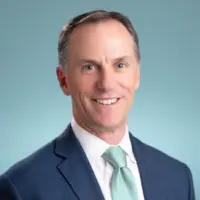
Gerald Gallagher
President & CEO
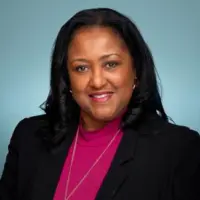
Deb Anderson
CIO

Shivani Bautista
Chief Legal Officer & Corporate Secretary

Lakshmi Halasyamani, MD
Chief Clinical Officer
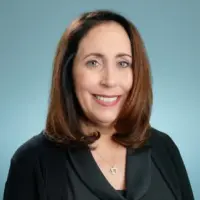
Dianna Sparacino
Chief People Officer
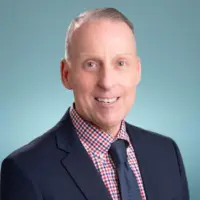
John Tressa
Chief Nursing Executive
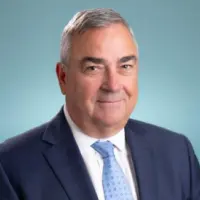
Doug Welday
CFO
Accreditations

The Joint Commission, formerly known as JCAHO, is a nonprofit organization that accredits rehab organizations and programs. Founded in 1951, the Joint Commision's mission is to improve the quality of patient care and demonstrating the quality of patient care.
Joint Commission Accreditation: Yes
Contact Information
155 E. Brush Hill Road
Elmhurst, IL 60126